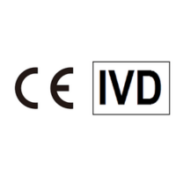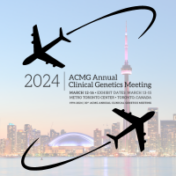Compound heterozygosity describes the relationship between two alternate alleles when they are located within the same gene but at different loci within that gene. Compound heterozygosity is particularly relevant in a recessive disorder when the presence of these alleles in combination confers an increased risk of disease, similar to a traditional homozygous recessive combination of alleles. The detection of compound… Read more »
DNA methylation is becoming more relevant as a clinically important biomarker, and long-read pipelines are making it easy to get this information in the same sequencing run as small variants and larger structural variants. Even though there are no official guidelines for addressing DNA methylation, it is still useful to analyze and evaluate this data, so we would like to… Read more »
This month, we saw overwhelming customer publications with great use cases of VarSeq. Explore the publications below of our amazing customers continuing to pioneer precision medicine. The polygenic implication of clopidogrel responsiveness: Insights from platelet reactivity analysis and next-generation sequencing Clopidogrel is widely used worldwide as an antiplatelet therapy in patients with acute coronary disease. Genetic factors influence interindividual variability… Read more »
We continue to make significant contributions to the field of genomic analysis through collaborative studies, innovative software solutions, and robust data interpretation methodologies. This blog highlights four recent contributions from our team and collaborators, showcasing the breadth of our research and its implications for clinical practice. Analyzing Performance of Twist Bioscience Exome Enrichment with Spike-in CNV Backbone Panels at Various… Read more »
We are excited to participate in the European Human Genetics (ESHG) 2024 conference, where we will showcase our latest advancements in genetic analysis software. Attendees can visit Booth #428 to explore tools like VarSeq, VS-CNV, VSClinical, VSPipeline, and VSWarehouse. These solutions, aligned with ACMG and AMP Guidelines, offer powerful options for genomic analysis. Live demos will highlight our newest pharmacogenomics… Read more »
We are pleased to announce that Golden Helix has received CE mark approval for its genetic analysis platform VarSeq Suite. This significant regulatory milestone paves the way for the expansion of our advanced genetic analytics products to the European market, ensuring compliance with the European Union’s health, safety, and environmental protection standards. Receiving the CE mark certifies that our VarSeq… Read more »
We have been building up to the final release of VarSeq 2.6.0 for a couple of weeks now, but we are excited to announce that 2.6.0 is officially available! VarSeq 2.6.0 is an exciting release as this version of VarSeq features the introduction of VSPGx, offering a complete pharmacogenomic workflow, including data import, variant analysis, and report generation. We have… Read more »
There are many ways to optimize an individual workflow, from increasing the granularity of a filter chain to automating certain multi-stepped tasks. Although the best way to optimize an individual workflow is to book a session with our FAS team to talk about your unique use case, we wanted to highlight five ways a workflow can be optimized across most… Read more »
VSPGx is a pharmacogenomics interpretation software based on CPIC recommendations. The field of pharmacogenetics bridges genetics and pharmacology, with the aim of optimizing drug therapies for individual patients based on their unique genetic makeup. It has the potential to revolutionize healthcare by improving drug efficacy, reducing adverse reactions, and advancing the concept of personalized medicine moving away from a one… Read more »
Join Golden Helix at the American College of Medical Genetics and Genomics (ACMG) 2024 conference and discover the latest advances in genetic research. This premier event brings together leading researchers, clinicians, and industry experts to share their insights on cutting-edge topics in medical genetics. Stop by our booth for a live demo of our software, learn about the latest features,… Read more »
The Broad Institute’s release of gnomAD v4 needs no introduction as the data in this release is highly sought after by professionals in the genetics community, and the v4 release has a lot to boast about! The v4 release is roughly five times larger than the v2 and v3 releases combined and includes data from 807,162 total individuals. Naturally, exome… Read more »
Many thanks to those who came to view our most recent webcast, From Panels to Genomes with VarSeq: The Complete Tertiary Platform for Short and Long-Read NGS Data. This was a great opportunity for us to showcase the breadth of our workflows, from short-read to long-read, panels to genomes, singleton analysis to families. In this blog, we would like to… Read more »
In this blog, we explore the impactful applications of VarSeq in genetic research and diagnostics. Through case studies, we examine its role in diverse conditions like Immune Mediated Thrombocytopenia (ITP), glaucoma, and Cri du Chat syndrome. These studies demonstrate VarSeq’s capability in identifying genetic variants and influencing diagnosis and treatment across various medical scenarios, showcasing its crucial role in advancing… Read more »
In the rapidly evolving field of genetic research, VarSeq software by Golden Helix stands out as a powerful tool for genetic analysis and interpretation. This is exemplified in two significant customer publications that demonstrate the versatility and impact of VarSeq in advancing our understanding of complex genetic disorders. Characterization of Potential Melanoma Predisposition Genes in High-Risk Brazilian Patients Increased genetic… Read more »
As many of you may already know, we just released VarSeq version 2.5.0 this month! We have talked about the two headlining features a bunch, but we have not focused on what else has changed in VarSeq 2.5.0 that might also strike your fancy. For those of you who might just now be tuning into the hype around 2.5.0, it… Read more »
It may come as a surprise to our long-standing users that the multi-allelic import and representation in VarSeq is slated to have different import options with the 2.5.0 upgrade. As the software grows and evolves, we strive to meet the changing needs of our users, and this is one area where an update was sorely needed. Before going into an… Read more »
Explore the Newest Developments in Variant Classification and Interpretation Tools at Booth 506 at ASHG 2023 Join Golden Helix at the American Society of Human Genetics (ASHG) 2023 conference and delve into the latest advancements in genetic research. This esteemed event brings together distinguished researchers, clinicians, and industry frontrunners to exchange knowledge on the most recent insights in human genetics…. Read more »
Recent advancements in medical research have been pivotal in deepening our understanding of a variety of health conditions. The utilization of tools such as VarSeq in these studies allows for comprehensive genomic analyses, thereby ensuring more accurate diagnoses and facilitating the development of targeted treatments. This blog highlights three recent publications that have utilized VarSeq to unravel the mysteries of… Read more »
Traditionally genetic tests in cancer have focused on small gene panels that restrict their analysis to a small number of well-studied cancer genes. However, as sequencing costs have decreased, many clinical laboratories have embraced comprehensive genomic profiling tests that rely on whole exome and whole genome next-generation sequencing (NGS) workflows, which can detect millions of high-quality variants for a single… Read more »
Your variants of interest have been identified, the SVs annotated, and the CNVs classified. Once the manifest has been imported (and here is a great blog on the subject), the last step is to bring all of this information into a report template! In this blog, we will go over some simple report modifications and provide resources for more information… Read more »



















